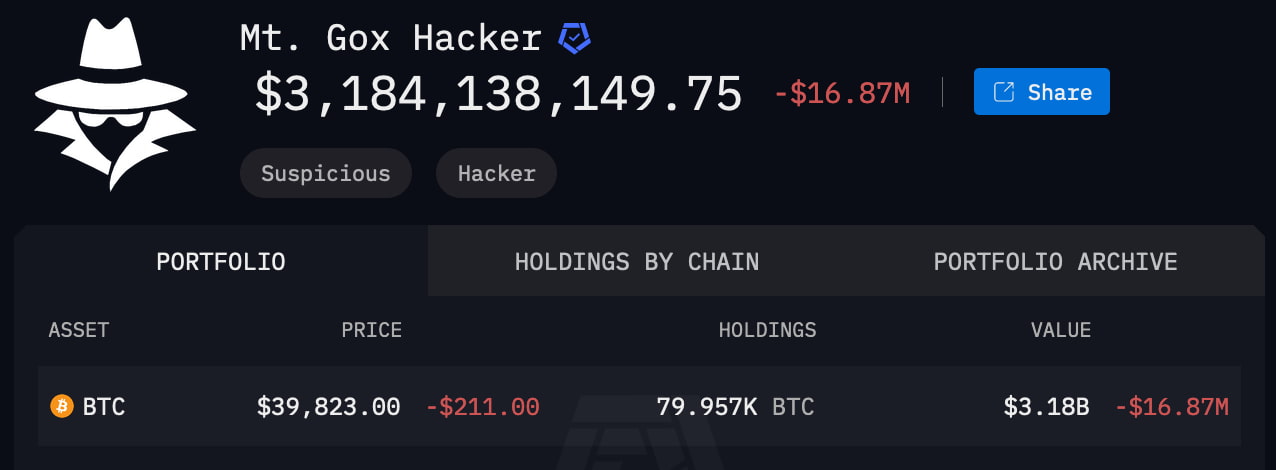Mt. Gox, once the world’s leading Bitcoin (BTC) exchange, suffered a cataclysmic downfall in 2014 after a massive hack led to the loss of hundreds of thousands of Bitcoin.
In particular, the Mt. Gox hacker slowly siphoned out around 650,000 BTC from the crypto exchange for three years. Many of these Bitcoins were supposedly laundered on BTC-e, founded in July 2011 by Alexander Vinnik and Aleksandr Bilyuchenko. Both were convicted of crimes related to the hack.
Notably, forensic analyses estimate that the Mt. Gox hacker still holds 79,957 BTC, currently worth $3.18 billion.

This puts the criminal among the 1,000 richest people in the world, according to Forbes billionaires. The Mt. Gox hacker has a net worth comparable to well-known public figures like the legendary basketball player Michael Jordan.

The Mt. Gox hack
In June 2011, hackers targeted Mt. Gox, the leading Bitcoin exchange founded by Jed McCaleb. Interestingly, McCaleb co-founded Ripple and, later, Stellar (XLM).
Back to the hack, the bad actor exploited a vulnerability in the exchange’s security system. Through a fake account, he manipulated account balances with the stolen credentials of Auden McKernan, a Mt. Gox auditor.
Essentially, part of the hack consisted of a fake account displaying Bitcoin for sale. This caused the price of bitcoin to plummet on the exchange. Therefore, the Bitcoin changed hands at artificially low prices, down to one cent per bitcoin.
The hacker purchased the Bitcoin at these deflated prices, later laundering them at BTC-e. In this context, security experts criticized Mt. Gox for weak security protocols. The exchange promised to improve its system and reimburse affected users.
In conclusion, this event still haunts Bitcoin investors and the cryptocurrency market. Investors fear a sell-off by the Mt. Gox hacker and the repayment to the victims and creditors.
 finbold.com
finbold.com
